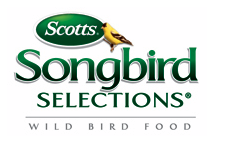Top Class Actions’s website and social media posts use affiliate links. If you make a purchase using such links, we may receive a commission, but it will not result in any additional charges to you. Please review our Affiliate Link Disclosure for more information.

The class action lawsuit, currently in California federal court, stems from a plea bargain agreement with the Environmental Protection Agency and Department of Justice Scotts entered into in February 2012. Under the terms of the agreement, Scotts pleaded guilty to illegally applying two pesticides to its birdseed products, resulting in 11 misdemeanors and $12.5 million in criminal and civil fines. The class action lawsuit was brought under the Racketeer Influenced and Corrupt Organizations Act. The plaintiffs alleged that Scotts illegally sold the bird food that contained the pesticides and intimidated its employees into keeping it secret.
On Monday, Scotts filed an opposition to the plaintiff’s motion to limit confidentiality arguing that it did not attempt to block employees from being interviewed by the plaintiffs in connection with the class action lawsuit. “Plaintiffs portray confidentiality provisions routinely found in employee confidentiality agreements and negotiated separation agreements between a company and its former employees as a nefarious mechanism to ‘lock up’ those individuals,” Scotts contends in its motion. “Not so,” Scotts continues. “Contrary to Plaintiffs’ rhetoric, Scotts never undertook any ‘campaign to ‘lock up’ witnesses, never employed any ‘[s]care [t]actics,’ and never made any ‘heavy-handed threat.’”
“Typical of their filings,” argued Scotts, “Plaintiffs’ rhetoric is largely divorced from the facts. Scotts has never embarked on any effort to lock up witnesses, has never used any scare tactics, and has never made any threats to any former employee.”
“Plaintiffs accuse Scotts of ‘lock[ing] up’ witnesses under the confidentiality agreements and leveling other baseless charges,” Scotts argues. “Once plaintiffs’ rhetoric is stripped from their substantive argument, little remains.”
“In fact,” Scotts continues, “plaintiffs cite no case — none — supporting their position that the court must set aside negotiated confidentiality agreements between Scotts and its former employees and must ignore Scotts’ interests and that plaintiffs and plaintiffs alone should decide when, where, and how any existing confidentiality agreements are enforced and the extent to which they are ignored.”
“Plaintiffs purport to present the Court with only a binary choice—allow Plaintiffs to be the sole arbiters of agreements or not (and thereby implicitly endorse what they unfairly and inaccurately describe as ‘lock[ing] down’ witnesses),” says Scotts in its motion. “But there are many ways that Scotts’ legitimate interests under the agreements could be protected,” it continues.
“Such arrangements typically allow defense counsel to be present during interviews, or limit the plaintiffs to ask only court-approved questions that have been vetted by defense counsel,” offers Scotts. Scotts argues that the latter option will not adequately protect its interests and requests the court allow the company to be present during the plaintiff’s interviews of its current and former employees.
In October, Scotts sought dismissal of the toxic bird food class action lawsuit, arguing that plaintiffs who did not accept its offer of full restitution no longer have valid claims.
The plaintiffs are represented by class action attorneys from Robbins Geller Rudman & Dowd LLP, Dowd & Dowd PC and The Driscoll Firm Pc.
The Scotts Toxic Bird Food Class Action Lawsuit is Cyphert, et al. v. Scotts Miracle-Gro Company, et al., Case No. 3:12-cv-01592, in the U.S. District Court for the Southern District of California.
UPDATE: On Dec. 16, 2016, Consumers are fighting back in a proposed class action lawsuit involving the head of Scotts Miracle-Gro Co.’s part in selling toxic bird seed, telling a California federal judge that no reasonable consumer would purchase a bird food product that was illegal.
UPDATE 2: On March 19, 2018, Scotts Miracle-Gro Co. will continue to face civil claims over its marketing of poisoned bird seed, now that a California federal judge has determined his court still has jurisdiction over claims from out-of-state plaintiffs.
ATTORNEY ADVERTISING
Top Class Actions is a Proud Member of the American Bar Association
LEGAL INFORMATION IS NOT LEGAL ADVICE
Top Class Actions Legal Statement
©2008 – 2024 Top Class Actions® LLC
Various Trademarks held by their respective owners
This website is not intended for viewing or usage by European Union citizens.















2 thoughts onScotts Fights Toxic Bird Food Class Action Lawsuit
I filled out my claim form but have yet to receive my settlement??? I saw checks have been mailed??? Where’s mine???
UPDATE: On Dec. 16, 2016, Consumers are fighting back in a proposed class action lawsuit involving the head of Scotts Miracle-Gro Co.’s part in selling toxic bird seed, telling a California federal judge that no reasonable consumer would purchase a bird food product that was illegal.